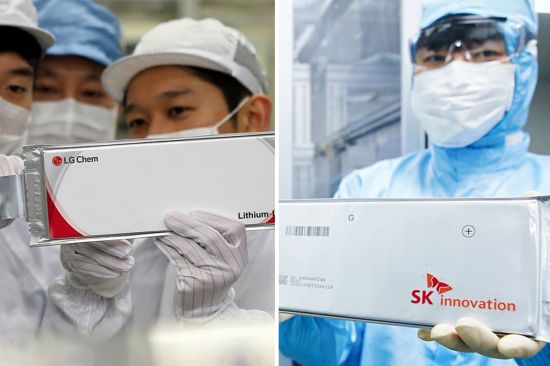
[아시아경제 박소연 기자] It is pointed out that only the Korean government is putting its hands on protecting the food battery industry in the future. Recently, as a report that the US IT dinosaur company Apple will release electric vehicles in 2024 shows signs of intensifying war over the electric vehicle and battery markets, companies that have no relation to the existing automobile industry are also drawing attention for the rising electric vehicle market. Behind the scenes is the strategic support of each government.
◇The second CATL comes
China is a prime example. Taking advantage of the THAAD incident in the past, the Chinese government provided unbiased subsidies to domestic companies to prevent Korean and Japanese companies that already have competitiveness in the battery industry from entering the market. As a result, it has raised the world’s best company called CATL. Recently, China is promoting Parasis as the second CATL.
Parasys is the fifth largest battery company in China that received investment from Daimler Group in Germany in July this year. Last year’s battery sales amounted to about 2.27GW. Parasys recently decided to establish a 20GWh-scale joint factory with Geotech Group.
Parasys is preparing to enter Germany through a strategic partnership with Mercedes-Benz. It is constructing a battery plant with an investment of about 600 million euros in Bitterfeld Ballpoint Pen in eastern Germany. At the end of 2018, Daimler signed a contract to supply a 140GWh battery.
◇ Biden’s eco-friendly keynote, expectations for incentives and subsidies
The United States is also ready to foster the electric vehicle industry by pouring out a bunch of eco-friendly policies by the Biden regime. By 2030, it is expected to install 500,000 charging stations nationwide and subsidize battery technology development, manufacturing, and job creation.
When Biden won the presidential election, Ford overturned the existing stance that it had no plans to produce batteries itself and opened up investment possibilities. In particular, as the US, the world’s second largest automobile market, has a high possibility of introducing an incentive system to foster its own industry, domestic companies are tense.
Europe is also focusing on fostering the battery industry with leading automakers at the EU level in order to reduce the dependence on batteries in the three countries. Volkswagen is building a joint plant with Swedish battery startup North Volt, and has also acquired a stake in Chinese battery maker Guo Xuan.
◇Korea’s preoccupied battery market opens its eyes and will be taken
On the other hand, the Korean government alone seems to have plenty of room. It is pointed out that governments are trying to lock the door and take away the battery market preoccupied by Korean companies. The battery litigation battle between domestic companies is backing up in a protracted situation.
The litigation costs that LG Chem and SK Innovation have invested so far are known to be between about 400 billion won and 500 billion won. This is the money to build a factory that can produce batteries for about 100,000 electric vehicles every year.
LG Chem and SK Innovation are setting the day by repeatedly announcing their principled position that they will faithfully engage in litigation. Chinese and Japanese companies are continuing to expand their business in the US while the two companies are fighting exhausting emotions over the US market.
Panasonic has begun developing a next-generation battery for Tesla electric vehicles. This is a battery introduced by Tesla’s CEO Elon Musk at the Battery Day event, which increases energy density by 5 times and output by 6 times and increases mileage by 16%. Panasonic plans to build a prototype production line in Tesla and Giga Factory Nevada, which was established in Nevada, USA.
CATL, which is about to enter Europe by constructing its first European plant in Erfurt, Germany, is considering building a plant in the US as well.
As Korean battery companies’ litigation battles are prolonged, concerns about battery supply instability in the automobile industry are increasing, and they are known to be thinking of alternatives. There are concerns that if the government does not move forward quickly, it will provide opportunities for immediate battery supply as well as fostering opportunities for foreign companies and further threaten future electric vehicle hegemony.
In April next year, it will be two years for the two companies to file a lawsuit. Too much time has passed for both companies to voluntarily close the gap, and there have been many opportunities. There are growing voices that the golden time for the government to play a role is short.
Reporter Park So-yeon [email protected]
